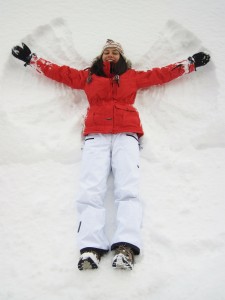Stress has been identified as significantly impacting our mental and physical health for decades(PDF). In fact, the American Psychological Association’s (APA’s) surveys on American stress show that 4 major factors are consistently reported as major causes of stress: money, work, family, and health.
 It is important to be aware of stress factors, but also our abilities to deal with stress. In stressful situations, our bodies become prepared to respond to negative surroundings. It’s an important survival mechanism. However, when we remain in stressful situations for long periods, our hyper-elevated physical states can lead to many poor mental and physical-health outcomes.
It is important to be aware of stress factors, but also our abilities to deal with stress. In stressful situations, our bodies become prepared to respond to negative surroundings. It’s an important survival mechanism. However, when we remain in stressful situations for long periods, our hyper-elevated physical states can lead to many poor mental and physical-health outcomes.
In fact, 3/4 of Americans report(PDF) experiencing at least one negative outcome from stress within the last month, including anger, anxiety, fatigue, depression, and changed eating behaviors. 1 out of 5 Americans report(PDF) engaging in coping behaviors. These coping behaviors include listening to music, exercising, watching television, surfing the internet, drinking a lcohol, and smoking. Clearly some of these behaviors are healthy and some are unhealthy– meaning we should each evaluate our usual behaviors when stressed.
lcohol, and smoking. Clearly some of these behaviors are healthy and some are unhealthy– meaning we should each evaluate our usual behaviors when stressed.
It is important for us to be aware of how we normally cope with stress and how we can choose coping methods that are healthy. Many stress management tips call for very specific activities, like YOGA or jogging. Yet, many of us don’t enjoy those activities. So this is your charge: Find YOUR healthy coping method(s) to deal with stress in 2016.
Some behaviors are known to help individuals cope with stress, but this does not mean you are limited to a couple de-stressing techniques. Instead, use the following recommendations to help you find a way to de-stress that fits your needs and likes:
- Research shows physical activity helps our bodies deal with stress. But you’re not limited to traditional exercise. It’s the
 physical activity that matters: If you enjoy basketball, get a basketball hoop. If you enjoy dancing, find cardio-dance videos online. If you like working with your hands, build something which requires lifting.
physical activity that matters: If you enjoy basketball, get a basketball hoop. If you enjoy dancing, find cardio-dance videos online. If you like working with your hands, build something which requires lifting. - New research also shows that the outdoors can help individuals learn to cope who’ve gone through high-stress situations: Walking in a park can aid your ability to deal with stress. But planting flowers, fishing, observing nature, or painting scenery can all also aid coping.
- Engaging in mindfulness can also enable you to deal with stressful situations: This doesn’t mean you have to take yoga classes; simply learning a few breathing techniques can aid your ability to cope.
- Just doing something you enjoy alleviates stress: Maybe you can’t make it to a park and
 your recreational basketball team doesn’t play for a few days, but engaging in a hobby– whether writing, baking, mechanics, or model plain-building– helps you de-stress.
your recreational basketball team doesn’t play for a few days, but engaging in a hobby– whether writing, baking, mechanics, or model plain-building– helps you de-stress. - Finally, research shows that relationships(PDF) aid coping with stress: Taking a group coffee-break or visiting your family can help you relieve stress– especially when you derive encouragement from the relationships.
The ways to deal with stress are diverse. The important point is to make time for physical activity, hobbies, and loved ones. Find your own healthy way to deal with stress this year. While you can’t make money, work, family, or health concerns disappear; you can make sure you deal with these stressors in healthy ways.

